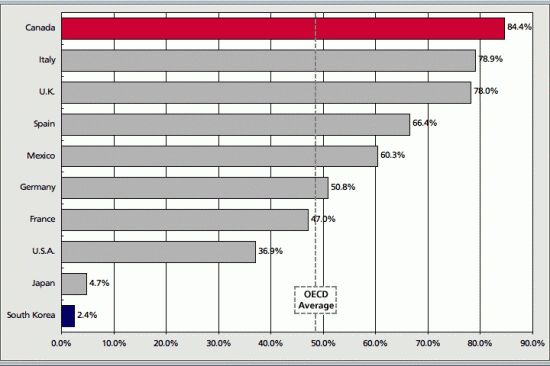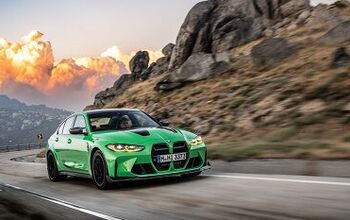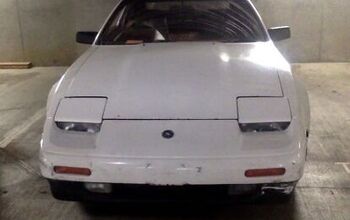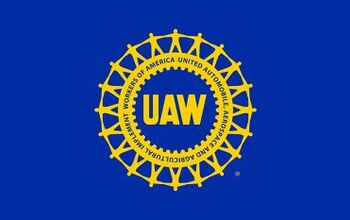Canadian Automakers Make Last Minute Lobbying Effort to Delay Korean Trade Deal
Imported vehicle sales by country. Source: Canadian Vehicle Manufacturers Association
Companies building cars in Canada are lobbying at the last minute to, kill an “imminent” free trade deal between Canada and South Korea that the automakers say would damage the Canadian auto industry and the greater Canadian economy. Ford Motor Co. of Canada Ltd. president and chief executive, Dianne Craig, said on Thursday that the U.S.-Korea trade agreement enacted in 2007 has been a “disaster” for auto makers. Craig urged the Conservative government not to make the same mistake as the United States.
“We understand that [the Canadian government] need[s] to look for what’s in the best interests of Canada,” Ms. Craig said in an interview with Toronto’s Globe & Mail. “But, frankly, autos are the greatest driver of GDP and we think we need to have a pretty strong voice in this conversation. This is not good for autos, which means it’s not good for the economy, which means it’s not good for Canadians.”
According to Ms. Craig, Canadian officials told Ford and other Canadian car companies in December that the free trade agreement with South Korea was “imminent.” Without getting into details, Craig said that the deal currently on the table is worse than what the United States got in 2007, but that the automaker is continuing discussions with the government on the issue.
The fierce opposition from Ford and other automakers has apparently resulted in Ottawa applying the brakes and at least temporarily delaying the agreement. Canadian federal officials won’t comment other than saying that the government hasn’t yet taken a final position.
Prime Minister Stephen Harper said last week that he “hopes” Canada and South Korea will reach a deal shortly, though he acknowledged the agreement might fall through.
Ford’s position is that instead of a bilateral agreement with Korea, Canada would be better off working through the current Trans-Pacific Partnership to make South Korea make its markets more open to imports including cars, and end currency manipulation. Canada is one of the twelve Trans-Pacific Partnership negotiating partners. South Korea has expressed interest in joining the TPP and like the other 11 members, including the U.S., Canada has veto power over new members. That gives Canada some leverage beyond the bilateral talks.
Canada had a $2.7 billion (Canadian dollars) trade deficit with South Korea in 2012, and motor vehicles represented more than 80% of that. That year Canada imported 131,174 Korean-made vehicles in 2012 versus exporting fewer than 3,000 Canadian built vehicles to South Korea.
Bringing up the U.S.-South Korea trade deal, Craig pointed out that under that agreement by next year U.S. tariffs on Korean cars will have been eliminated, but that continuing non-tariff barriers have kept American and European automakers from gaining market share in South Korea despite the free trade deal.
“To us, they are not a good fair trade partner and they have proven that in the last two agreements,” Craig said. “That is our concern for Canada. All you have to do is look at the data and it speaks volumes.”
Some Canadians have said that the trade agreement and car imports from Korea just might have to be the price the auto industry has to pay in exchange for the billions of dollars in government assistance to that industry in recent years. Ford itself received a $71.6 million loan from the Canadian government just last year to help pay for some retooling at Ford’s Oakville, Ontario assembly facility. Craig rejected that connection.
“There are many components that go into manufacturing competitiveness in Canada,” she said. “There is a lot the government has done to support our industry. But frankly this [Korea-Canada] agreement would set automotive manufacturing back in Canada.”
More by TTAC Staff
Latest Car Reviews
Read moreLatest Product Reviews
Read moreRecent Comments
- AZFelix 2015 Sonata Limited72k when purchased, 176k miles currentlyI perform all maintenance and repairs except for alignment, tire mounting, tire patching, and glass work (tint and passenger left due to rock hit). Most parts purchased through rockauto.com.Maintenance and repairs during three years of ownership:Front rotors and all brake pads upgraded shortly after purchase.Preparing for 17th oil change (full synthetic plus filter c.$50), one PCV valve.Timing & accessory belts, belt tensioner.Coolant full flush and change.Fibrous plastic material engine under tray replaced by aftermarket solid plastic piece $110.One set of tires (c.$500 +installation) plus two replacements and a number of patches due to nails, etc. Second set coming soon.Hood struts $30.Front struts, rear shocks, plus sway bar links, front ball joints, tie rod ends, right CV axle (large rock on freeway damaged it and I took the opportunity to redo the rest of items on this list).Battery c.$260.Two sets of spark plugs @ $50/set.Three sets of cabin and engine filters.Valve cover gasket (next week).Averages out to c.$1400 per year for the past three years. Minor driver seat bolster wear, front rock chips, and assorted dents & dings but otherwise looks and drives very well.
- 3-On-The-Tree 2014 Ford F150 Ecoboost 3.5L. By 80,000mi I had to have the rear main oil seal replaced twice. Driver side turbo leaking had to have all hoses replaced. Passenger side turbo had to be completely replaced. Engine timing chain front cover leak had to be replaced. Transmission front pump leak had to be removed and replaced. Ford renewed my faith in Extended warranty’s because luckily I had one and used it to the fullest. Sold that truck on caravan and got me a 2021 Tundra Crewmax 4x4. Not a fan of turbos and I will never own a Ford again much less cars with turbos to include newer Toyotas. And I’m a Toyota guy.
- Duke Woolworth Weight 4800# as I recall.
- Kwik_Shift_Pro4X '19 Nissan Frontier @78000 miles has been oil changes ( eng/ diffs/ tranny/ transfer). Still on original brakes and second set of tires.
- ChristianWimmer I have a 2018 Mercedes A250 with almost 80,000 km on the clock and a vintage ‘89 Mercedes 500SL R129 with almost 300,000 km.The A250 has had zero issues but the yearly servicing costs are typically expensive from this brand - as expected. Basic yearly service costs around 400 Euros whereas a more comprehensive servicing with new brake pads, spark plugs plus TÜV etc. is in the 1000+ Euro region.The 500SL servicing costs were expensive when it was serviced at a Benz dealer, but they won’t touch this classic anymore. I have it serviced by a mechanic from another Benz dealership who also owns an R129 300SL-24 and he’ll do basic maintenance on it for a mere 150 Euros. I only drive the 500SL about 2000 km a year so running costs are low although the fuel costs are insane here. The 500SL has had two previous owners with full service history. It’s been a reliable car according to the records. The roof folding mechanism needs so adjusting and oiling from time to time but that’s normal.


































Comments
Join the conversation
The CVMA's chart purporting to show that imported cars dominate the Canadian market is grossly misleading. Since the Canada-US Auto Pact was signed in 1966, and continuing through FTA and NAFTA, Canada and the US have constituted a single market for motor vehicles. The car companies have organized production accordingly, producing a model in a plant for sale in both countries. So, cars built in the US and sold in Canada are not truly "imports" - they are effectively part of domestic North American production. As are cars built in Canada for sale in the US. If the CVMA made a chart of vehicle exports on the same basis as their imports chart, it would show Canada as a huge exporter of motor vehicles. Of course, this wouldn't suit their totally self-interested lobbying, so they won't do it.
Ford supported the US South Korea Free Trade pact in 2007, but are dead set against the newly signed Canada South Korea Free Trade pact signed yesterday. Where is the logic? We get Diane Craig, Prez of FoMoCo Canada, absolutely working herself up into a full steam aneurysm railing against South Korea, blah, blah this, blah blah that, and claiming the auto industry is the main driver of wealth in Canada. She is joined by the union brains trust at Unifor, and the intellectually bankrupt government of Ontario. So our Prime Minister told Ford to get its story straight yesterday, and I applaud him for it, just as I think most of his other policies are somewhere right of Genghis Khan and stupid. And unnecessarily mean and unfair. What he told Ford was, in the US you have free trade with Korea which you supported, the US and Canada have NAFTA, so if you want to export to South Korea - do so. But Canada is not going to have a special agreement to satisfy Ford, nor should they expect to be treated as a special case. Great gnashing of teeth followed from the usual suspects.